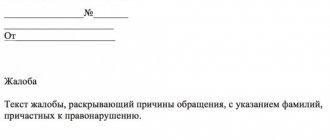The main guarantees of rights are the following documents: the Constitution of the country, the Family Code of the Russian Federation and the Convention on the Rights of Children . The last document was approved at one of the meetings of the UN Assembly. In addition, the protection of the rights of minor children is guaranteed by various federal laws, which stipulate the following points:
- Healthcare.
- Basic guarantees.
- Education.
- Guarantees of social support for children left without parental care.
- About equality.
- On social protection in the Russian Federation for disabled children, etc. (disabled people can also apply for a visa and travel).
Basic laws on children's rights in the Russian Federation.
Convention on the Rights of Children
The legal regulation of all emerging issues regarding the protection of the rights of the child is based on the Convention. This document is the fundamental one among all the listed laws. In other words, the Convention serves as a guarantee of the rights of the child in the Russian Federation. But that's not all: there are many other points that need to be mentioned.
The Declaration of the Rights of the Child contains many more points regarding the protection of children and their lives. It mentions the protection of orphanhood, the rights of disabled children, protection from sexual violence and cruel treatment. The Declaration of the Rights of the Child also contains the following guarantees:
- Protection of living space.
- The secrecy of telephone conversations and correspondence.
- Non-disclosure of personal information, in particular about adoption, personal life, etc.
- Opportunity to receive help in case of family deprivation. In such cases, the rights of minor children are protected by the state.
- Protection from being forced to work in hazardous work.
What does a child have the right to in Russia?
How does the state protect children?
Respect for the rights of every minor is the responsibility of government agencies. In particular, this is the task of institutions responsible for guardianship and trusteeship. If serious conflict situations arise, the prosecutor's office and the court may intervene.
To do this, the child himself (or his parents) can fill out a special application form and send it to the prosecutor's office. Next, the case will go to court, which will regulate the rights of the child.
Until what age is a child considered such?
A child is considered a person who has not reached the age of majority (eighteen years of age). But there are also exceptions. The first case is if a 16-year-old teenager, with the consent of his parents (guardian, adoptive parent), gets a job, signs a contract or employment agreement, and engages in volunteering.
As an option, a 16-year-old teenager begins to engage in entrepreneurial activity, then he can already be declared legally competent. Another case is marriage before adulthood. In this case, the teenager is considered legally competent from the day the marriage was concluded.
For information about what emancipation of minors is, see the following video.
Minors and minors
By law, children were divided into two categories - minors and minors. Depending on the category of children in the Russian Federation, whether they are minors or minors, children and their parents are provided for by law with various rights and freedoms. A child is considered a minor from birth to the age of fourteen.
At the age of 14, a teenager becomes a minor. The rights and freedoms of each child depend on which category he belongs to. So, until he turns 14 years old, all issues are resolved by his parents (guardians, adoptive parents).
At the age of 14, a person already has the right to independently make decisions about small transactions, and upon reaching adulthood, he acquires the rights of an adult, becomes fully capable and has all the civil rights and responsibilities of other citizens of the state.
According to the law of the Russian Federation, 14 years is the period for obtaining a passport.
How is it going abroad?
As for other countries, home education is also practiced there. The most democratic approach to this can be observed in the USA. If a child is studying at home there, then in order to enroll in a university, parents must fill out an application form indicating a list of subjects studied. The applicant will take the tests in the general stream, that is, he will not be required to obtain a state certificate.
Initially, homeschooling in the United States was allowed only for religious reasons. Since 1980 there have been no restrictions in this regard. In different states, the requirements for homeschoolers (English home - “house”, school - “school”) differ: in some places parents must provide educational authorities with educational plans, in others they simply need to report their intention to study at home, and in others There is no need to notify educational authorities at all.
Within the framework of this topic, it is appropriate to recall the story of the world famous American inventor Thomas Edison. School teachers recognized him as incapable of learning, and then his mother began to educate her son, and, apparently, very successfully.
In European countries, homeschooling is also legal, but often has more problems in practice than in the United States. For example, in France, such families are checked annually by school inspectors. If the result does not satisfy them twice, the child is sent back to school. In Germany, only children with serious illnesses can study at home. If parents violate this regulation, they face a fine and sometimes even prison. Family education is also prohibited in Sweden (except in special circumstances).
What rights does current legislation guarantee for a child?
The Universal Declaration of Human Rights issued by the UN regarding the rights of the child contained the following declaration: due to the fact that children are still physically and mentally immature, they must be guaranteed legal protection.
This will help ensure protection and care from the moment of conception until the age of 18. To ensure that children can live a happy life, several important principles have been established to ensure a happy childhood.
Principles of the Declaration
The most important of them states that every child has all fundamental rights that should be recognized by both other children and adults. Discrimination on grounds such as religion, language, gender, skin color, race, political or other opinions, national or social origin, property status or any other circumstances that affect both children and members of their family is prohibited.
Principles of the Declaration of the Rights of the Child.
Every citizen of the Russian Federation from birth has the right to receive a last name, first name and patronymic. They can be given by both parents and adoptive parents. If a father and mother have different surnames, which one their son or daughter will bear is decided by mutual agreement. If the parents could not agree, the child’s first and last name is given by the guardianship and trusteeship authority.
If parents do not like the name chosen by themselves or a government organization, they have the right to change the surname or first name, but until their child turns 10 years old. If the daughter or son is over 10 years of age, then, according to legal protection, it is possible to change the child’s last name or first name only if he agrees with this decision.
Social protection
Under the current law, a minor citizen is provided with social protection. He is also provided with favorable conditions so that he has the opportunity to develop spiritually, morally, mentally and physically, his freedom, dignity, social rights and interests are not oppressed by other people: the main goal of all legislative acts of the Russian Federation regarding children is to best ensure the interests of each child until 18 years.
Expenditures on the social sphere of the Russian Federation.
Family law
Family law says: in order for a child to develop fully and harmoniously, he needs love and understanding, which only a family can give - natural or adoptive parents, guardians.
Material and moral security, an atmosphere of love in the family circle, parental responsibility - all this ensures a happy childhood for every child. The most important right of minor children is to always remain with their mother and only in exceptional cases is separation from her allowed. Society and public authorities are obliged to take care of the rights of orphans who have no family and no means of subsistence.
If a child lives in a large family, the ombudsman for children’s rights in the constituent entities of the Russian Federation must ensure that this family is provided with benefits from the state so that they can support the children.
Just about the main thing. Family law in the Russian Federation. We recommend watching it.
Education
Education is the most important condition on which not only the career, but also the well-being of every citizen depends. Therefore, the Civil Code of the Russian Federation states that every child can study at school for free. Moreover, the state legislatively regulates the education system so that it helps every student:
- develop culturally;
- develop personal judgment;
- foster moral responsibility.
All this will help everyone, over time, benefit the society that gave him all these opportunities.
Responsibility for the quality of education lies not only with educational institutions, but also with parents: the child must be provided with all the conditions for learning, as well as games, the purpose of which is to improve education.
Realization of the child's right to education.
The state also defends the right of people with disabilities to education: for this purpose, various educational institutions of various types have been opened.
Child's rights to education
The types of rights associated with education are as follows. The child can:
- Take an accelerated course.
- Use information and library resources.
- Get additional education.
- Study in your native language or choose any other language of instruction provided by the educational system.
- Move to another educational institution if the educational institution ceases its activities. But at the same time, according to the rights of the child in the Russian Federation, he must agree on his decision with his parents.
- Defend and defend your decision to change professional training. If he does not like his future profession, it is unacceptable to violate the child’s personal rights in this matter.
- Realize your desire to obtain higher education.
Expenses on education in the Russian Federation.
What is prohibited for a student at school?
There are some things that a student is strictly prohibited from doing:
- The child must not jump on the steps or ride on the railings.
- You cannot carry life-threatening objects with you to school.
- It is prohibited to play cards on school grounds.
- You cannot smoke or drink alcohol.
- You can't open doors suddenly, as you might hit someone.
- It is forbidden to be rude and rude to elders.
- A student must not use obscene language not only in front of adults, but also in front of other students.
- It is forbidden to take other people's things, much less spoil them. If the child does damage someone else’s property, the parents are obliged to reimburse its full cost.
- A student is prohibited from coming to class without completing his homework.
Medical support
As for health protection, the rights of the child in the Constitution of the Russian Federation also contain clauses regarding health protection. They state that every minor has all rights and freedoms in the field of medical care. He can:
- Get treatment and observation at a dispensary.
- Take advantage of preferential conditions for food and medical care.
- Receive information about his/her health status in a form that, according to the protection of children's rights, is accessible to his/her age.
- Study and work in conditions that exclude the adverse effects of various factors on his health.
What is very important, the protection of children’s rights in the Russian Federation allows minors who have reached the age of 15 to voluntarily agree or refuse medical intervention in writing.
Healthcare costs in the Russian Federation.
Property rights of children
In the law on the fundamental rights of the child, one of the important points is the right of every minor to their own property. This applies to children’s housing rights and property purchased with personal funds, donated or inherited. According to the Civil Code, each child can dispose of his property at his own discretion.
Responsibilities of parents to support children
As for maintenance, the documents on children's rights say: parents must support their children until they receive an education. If the mother (father) receives child support, then, as indicated in the Federal Law, she (he) can spend the funds received on the maintenance of the child.
The amount of alimony is regulated by the court, but the amount cannot exceed 25% of the earnings of the party paying the elements. In addition, the party paying alimony may deposit the amount into a bank account opened in the name of the minor son or daughter. To see what types of alimony are provided for by law, see the following video. Upon reaching 18 years of age, according to the guarantee of children's rights in the Russian Federation, the owner can use the funds for education or for other purposes.
Rights of disabled children
What can the most vulnerable category of children count on? The Constitution of the Russian Federation guarantees equal rights to all citizens without exception.
Right to study
According to the Federal Law, children with disabilities have a number of advantages over their peers:
- Priority admission to kindergartens and free attendance;
- Education in specially created correctional classes, if the state of health does not allow being in general education classes, as well as at home;
- Free meals at school;
- Gentle mode of passing exams.
Features of inclusive education.
The right to treatment, rehabilitation and socialization
Every disabled child has the right to treatment, rehabilitation and social adaptation in society. So what exactly can families raising a child with disabilities expect?
- Treatment in medical institutions and rehabilitation;
- Everything you need for a comfortable life for a minor (wheelchairs, orthopedic shoes, literature for visually impaired children, etc.);
- A ticket to a sanatorium, and the state provides free round-trip travel for both the child and his accompanying person.
- Free travel on public transport.
- Monthly cash benefits in accordance with the disability group and region.
Children with disabilities need comprehensive care.
Student problems at school
The child may have some problems with peers and teachers. Why is this happening? Children's problems at school are due to behavior. He cannot sit quietly in a chair, he spins around and interferes with his desk neighbor, the teacher and all the children. The teacher, accordingly, gets angry with him, and the educational process is disrupted.
There are also slow children who do not have time to learn educational material on an equal basis with their peers.
Here are just two examples of schoolchildren who may have problems with their studies.
Therefore, children should know the responsibilities and rights of a student at school even in the elementary grades.








